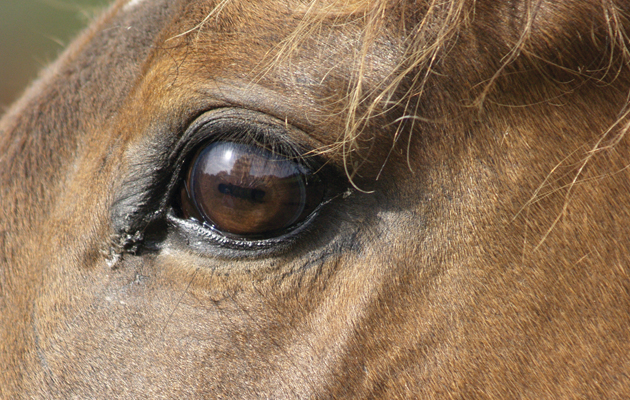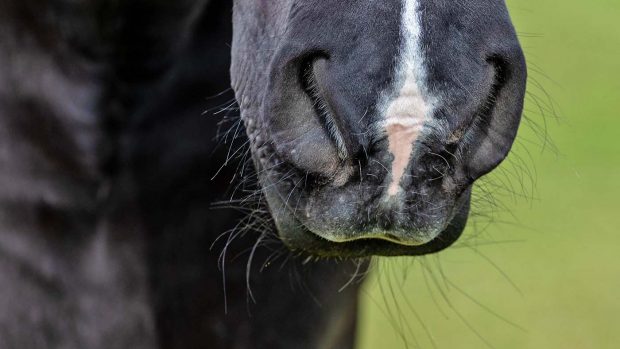We’ve all heard the phrase “animals can smell fear” and a recent study has suggested that horses can indeed pick up on emotions from human sweat.
An Italian investigation monitored the heart rate of horses in response to human body odours, and appeared to show that equines displayed different responses to “fear” and “happiness”.
“Our results revealed that human body odours induce sympathetic and parasympathetic changes and stimulate horses emotionally, suggesting inter-species transfer of emotions via body odours,” said the authors of the study, conducted by Dr Antonio Lanata and colleagues at the University of Pisa.
Sterile pads were used to collect sweat from the armpits of human subjects, who were watching 25-minute “fear or happiness-inducing” videos. These were arranged into pooled samples for fearful and happy states.
Seven horses were then recruited for the study, and after baseline ECGs were taken, they were approached in their boxes by an unfamiliar person, who scented their hands in turn with test tube samples of fearful and happy odours, as well as a third “no odour” sample.
The horses’ ECG signals were recorded under these conditions and then analysed.
Statistics showed that human fear odour caused an increase in spectral power on both the low frequency and high frequency bandwidths of the ECG and that happiness and fear elicitation were statistically different in low frequency peak values.
“The results showed that human chemosignals affect the physiological status of horses as seen by the changes in their autonomic activity,” the study concluded.
The research aimed to explore the mechanism by which human emotions could influence equine behaviour, particularly the tendency of horses to perform “unexpected reactions” when ridden by a “nervous person”.
Continues below…

Horses can tell when human voices and facial expressions don’t match
Research found the horses reacted differently when pictures of human emotions did not match those in recorded voices

Subscribe to Horse & Hound magazine today – and enjoy unlimited website access all year round

Are horses affected by our tone of voice?
Research shows that horses don’t naturally differentiate between our soft voice tones and our angry ones
“These findings can probably open the way of understanding the unexpected behavior of horses when interacting with humans. Of course, the novelty of the experimental protocol along with the limited number of subjects involved in the study has to be acknowledged and necessitates a more reliable and larger sample in a more naturalistic scenario,” the report said.
It added that the findings made it possible to design more effective strategies to manage animals across a range of situations in which “a strict human-animal interaction is required, such as the well known Animal Assisted Therapy.”




